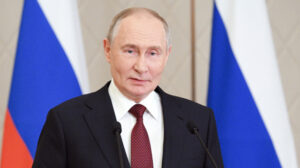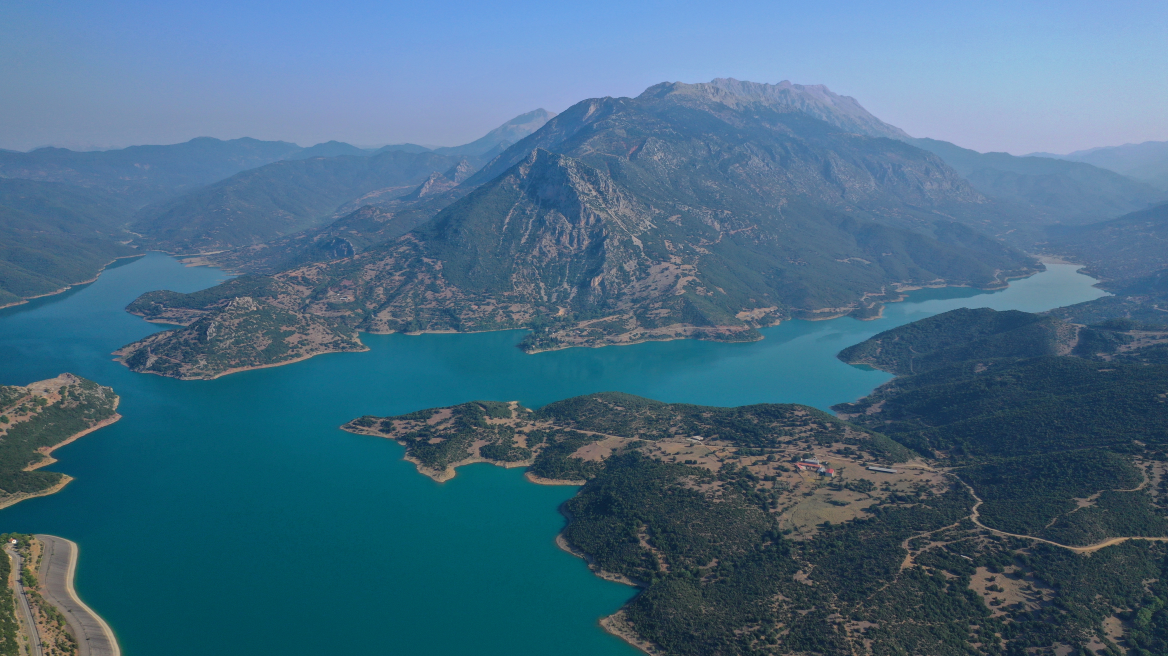Russian President Vladimir Putin made new threats from a council in Kazakhstan where he spoke and commenting on a New York Times report said that if Ukraine gets nukes, Moscow will use all means of destruction against it.
In particular, Putin gave a harsh response to a report last week that quoted Western officials as saying that Joe Biden could give Ukraine nukes before he leaves the White House.
Speaking at a summit attended by allied countries of the former Soviet Union in Astana, Kazakhstan, the Russian president said he would not allow nuclear weapons to be given to Ukraine.
“If that happens,” he continued, “we will use every means of destruction at our disposal.”
Putin also stressed that it is practically impossible for Ukraine to use nuclear weapons, but it could “use some kind of dirty bomb.”
Putin also accused Germany of using “illegal measures” and “unacceptable” methods against assets belonging to Russia’s largest oil company, Rosneft.
“Under what conditions we will end the war”
At the same time, from Astana, the Russian president suggested that he has seen no progress from Ukraine to start talks with Kiev on a peace settlement, while reiterating that the conditions he set in June for a real deal remain unchanged.
He added that in June Russia would end the war in Ukraine only if Kiev agreed to give up its NATO ambitions and surrender all four provinces claimed by Moscow, demands Kiev quickly rejected.
“Smart politician Trump will find a solution”
Putin did not fail to mention Donald Trump, stating that he is ready to start a dialogue with the US, while saying he considers the re-elected US president “a smart politician capable of finding a solution.”
He added that in his view the US president-elect “is not yet safe”.
“Trump had suffered two apparent assassination attempts in the run-up to his presidential election victory,” Putin noted in particular.
“Oreshnik” can destroy things 3-4 stories deep
The Russian president spoke again about the “Oreshnik” ballistic missile and its capabilities, saying that “it works exactly as its creators designed it, it is a high-precision weapon.”
“Of course, we can add more capabilities and it will be even more powerful, but the main thing is that the basic model has been created and it works just as its creators designed it. It is a high-precision weapon,” Putin said, adding that the damage it can cause is very serious. “The damage is very serious. Everything at its focus turns to ashes, and disintegrates into its constituent elements. Objects that are 3-4 and even more floors deep are destroyed.” Furthermore, he reiterated that it is not a nuclear weapon, as it “does not carry nuclear warheads.”
As the Guardian reported earlier, Putin claimed that Russia can produce ten times more missiles than all NATO countries combined.
He claimed that the first Oreshnik strike last week “was in response to the enemy’s attacks,” implying Ukrainian attacks with US and British missiles.
According to the Russian president, in fact, “there is no missile in the world that looks like the Oreshnik,” estimating that it will be a long time before the West builds similar weapons.
In this context, he warned that if Russia needed to go ahead with a massive Oreshnik missile attack, the strike would resemble a nuclear attack.
US and British analyses say that the Oreshnik missiles used in the Dnipro attack have a theoretical range of 5,500 km and thus can hit all of Europe but not the US.
Concluding their reference to Oreshnik, Putin reportedly said that new missile systems could be used while Russia continues its testing.
Russia attacked with cluster munitions in the energy sector
The statements come as Russia has launched a large-scale attack on energy targets in Ukraine leaving more than 1 million people without power.
Kyiv has even accused Moscow of using cluster weapons. Volodymyr Zelensky reiterated his request to his Western allies Kiev to supply Ukraine with more anti-aircraft defense systems and ensure timely deliveries, particularly during the critical winter months as Ukraine struggles to protect its energy infrastructure from bombing.
Ask me anything
Explore related questions





